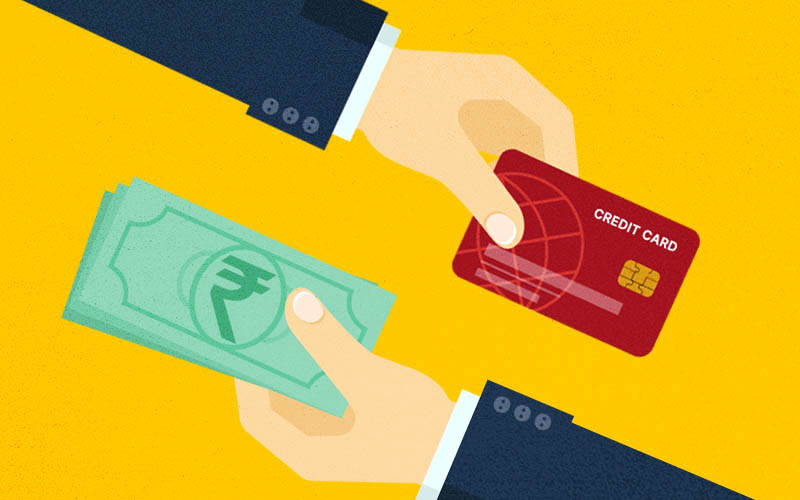Let’s talk about credit card accounts? As the year draws to a close, many individuals and businesses find themselves reflecting on their financial habits, especially regarding credit card use. With the holiday season and year-end expenses looming, managing credit card accounts becomes crucial to avoid excessive debt and financial stress. This guide will explore effective strategies for managing credit card accounts during the year-end period, ensuring a healthy financial outlook as the new year approaches.

Understanding Credit Card Accounts Basics
How Credit Cards Work – Credit Card Accounts
Credit cards allow users to borrow money up to a certain limit for purchases or cash withdrawals, with the obligation to repay the borrowed amount, typically with interest. Understanding the terms associated with credit cards—such as interest rates, grace periods, and fees—is essential for effective management. A solid grasp of these basics can help individuals make informed decisions about when and how to use their cards.
The Impact of Interest Rates – Credit Card Accounts
Interest rates significantly influence the cost of using credit cards. If balances are not paid in full each month, interest can accumulate quickly, leading to larger debts over time. During the year-end season, it’s vital to be aware of your card’s interest rates and the potential implications of carrying a balance into the new year.
Assessing Your Current Financial Situation – Credit Card Accounts
Reviewing Your Credit Card Statements
Before making any year-end purchases, take the time to review your credit card statements. Look for patterns in your spending and identify any areas where you may be overspending. Understanding where your money goes can help you make more informed choices during the holiday season.
Checking Your Credit Utilization Ratio
Your credit utilization ratio, calculated by dividing your current credit card balances by your total credit limit, is a key factor in your credit score. Ideally, this ratio should remain below 30%. As year-end expenses add up, monitor your utilization ratio closely to avoid negative impacts on your credit score.
Creating a Year-End Budget – Credit Card Accounts
Setting a Realistic Budget
Creating a budget specifically for year-end expenses can help you manage spending and avoid the temptation to overspend. Consider all potential expenses, including holiday gifts, travel, and entertainment. A well-defined budget will provide a clear framework for your spending, helping you stay on track.
Allocating Funds for Credit Card Payments
Incorporate your credit card payments into your year-end budget. Prioritize paying off existing balances before adding new charges. Allocating funds for these payments can help prevent accruing high-interest debt and ensure your credit card accounts remain manageable.
Smart Shopping Strategies – Credit Card Accounts
Planning Holiday Purchases
With numerous sales and promotions during the holiday season, planning your purchases can help you take advantage of discounts while avoiding impulse buying. Make a list of items you need or want, and stick to it. This strategy can help you resist the urge to overspend on unplanned purchases.
Utilizing Rewards and Cash Back
If your credit card offers rewards or cash back, consider using it for planned purchases to maximize your benefits. However, only use your card for items you can afford to pay off immediately to avoid interest charges. This approach allows you to earn rewards while maintaining financial discipline.
Managing Credit Card Payments – Credit Card Accounts
Paying Off Balances Promptly
To avoid high-interest charges, aim to pay off your credit card balances in full each month. If that’s not possible, prioritize paying down high-interest debts first. Establishing a payment plan can help you systematically reduce your balances over time.
Setting Up Alerts and Auto-Pay
Setting up payment alerts or automatic payments can help you stay on top of due dates and avoid late fees. Many credit card companies offer these features, making it easier to manage your accounts during the busy year-end season.
Avoiding Common Pitfalls
Steering Clear of Impulse Spending
The holiday season can trigger impulse spending, often fueled by marketing and social pressure. Be mindful of your spending habits and take a moment to evaluate whether a purchase aligns with your budget and financial goals.
Avoiding New Debt
While it may be tempting to use credit cards for year-end purchases, be cautious about taking on new debt. Consider whether you can afford the purchases without relying on credit. If you find yourself accumulating new debt, reevaluate your spending habits and adjust your budget accordingly.
Planning for the New Year
Setting Financial Goals
As the year ends, take time to set financial goals for the upcoming year. Consider objectives such as reducing credit card debt, improving your credit score, or saving for a specific purchase. Setting clear goals can provide motivation and direction for managing your finances.
Reflecting on Spending Habits
Use the year-end as an opportunity to reflect on your spending habits and identify areas for improvement. Analyze what worked well and what didn’t, and adjust your financial strategies accordingly. This reflection can help you approach the new year with a healthier financial mindset.
Conclusion
Managing credit card accounts during the year-end season requires careful planning and discipline. By understanding credit card basics, assessing your financial situation, creating a budget, and implementing smart shopping strategies, you can navigate this busy time without falling into debt. As you prepare for the new year, take the opportunity to set financial goals and reflect on your spending habits, ensuring a positive financial outlook as you move forward. With the right strategies in place, you can enjoy the holiday season while maintaining control over your credit card accounts.






